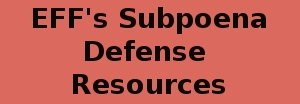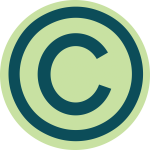On January 27, 2015, New Media Rights, along with 6 other organizations and 7,550 concerned Internet users, signed a letter calling on Senator Wyden for his assistance opposing the renewal of “Fast Track" authority [also known as Trade Promotion Authority or TPA].
Particularly, this letter urges Sen. Wyden to stand up to the recently proposed Fast Track bill. If this bill passed and Fast Track were renewed, Congress would lose its power over trade policy. That power would go directly into the hands of the White House. This would deny Congress the opportunity to review and amend treaties negotiated entirely in secret like the Trans-Pacific Partnership (TPP) agreement and the Trans-Atlantic Trade and Investment Partnership (TTIP).This lack of meaningful review could lead to more extreme regulations which threaten Internet freedom and many of the efforts to reform Intellectual property law in the US.
As a Ranking Member of the Senate Finance Committee Sen. Wyden has significant influence on the future of FastTrack. And as a long-time defender of digital rights and outspoken critic of the TTP, it is critical Sen. Wyden knows that once again we need his support. The letter concludes:
Users urge you to stand strong and oppose any new version of trade authority that does not include these critical guarantees of transparency, inclusiveness and accountability…
We are counting on you, as a pioneer in the digital rights movement, to oppose any TPA bill that does not truly address these troubling procedural issues.
Please do not support TPA. The Internet is counting on you.
The coalition of 7 public interest groups signing onto the letter include: Creative Commons, Electronic Frontier Foundation, Internet Archive, Knowledge Ecology International New Media Rights, Open Media International, Public Knowledge. The full text of the letter is attached to this post.






 New Media Rights has filed comments with the Copyright Office supporting four specific exemptions to the Digital Millennium Copyright Act’s anti-circumvention provisions that will protect both internet users and creators' rights under fair use. Exemptions are argued every 3 years, and ensure that accessing copyrighted material for purposes of fair use don't needlessly violate federal law.
New Media Rights has filed comments with the Copyright Office supporting four specific exemptions to the Digital Millennium Copyright Act’s anti-circumvention provisions that will protect both internet users and creators' rights under fair use. Exemptions are argued every 3 years, and ensure that accessing copyrighted material for purposes of fair use don't needlessly violate federal law.